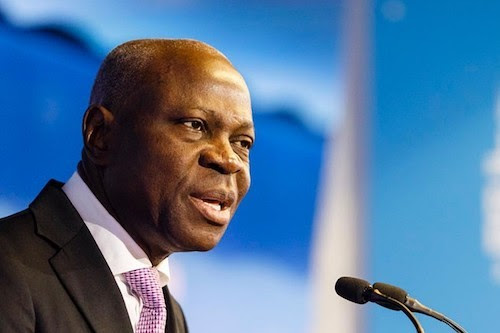Gilbert Houngbo
Africa is at a crossroads for the future of the continent whose demography is dominated by young people, and employment issues will be among the most critical in the coming years. The appointment of an African to head the ILO, after 103 years of the organization’s existence, was increasingly anticipated.
In March 2022, Togo’s Gilbert Houngbo was elected to head the International Labour Organization (ILO), becoming the first African to hold the post. He was elected in the second round, beating the Frenchwoman Muriel Pénicaud. He will officially take office in early October, following the British Guy Ryder, in office for 10 years. His appointment is important for Africa: the demographics and the number of young people entering the job market in the next decade are more important than ever, and the ILO will have a key role to play.
“This election carries a strong symbolism. Your choice responds to the aspirations of a young African, a young African whose humble upbringing has turned into a lifelong quest for social justice,” said Gilbert Houngbo after his election was announced.
Gilbert Houngbo arrives at the head of the ILO at a time when the organization must adapt to a changing labour market, driven by new technologies, among others. Especially since the Covid-19 pandemic has introduced telework in the functioning of most companies and institutions.
The appointment of Gilbert Houngbo is also important for Africa. According to the ILO, the continent had 764 million people of working age or 59% of its total population in 2019.
In 2019, 86% of jobs on the continent were in the informal sector. In addition to reversing this trend, the continent must deal with its exploding demographics and the huge number of people who will enter the labour market in the next 10 years.
It’s a challenge that doesn’t seem to scare the new CEO in the least. “I am delighted to accept this challenge and to continue my commitment to the defence of the most vulnerable,” he tweeted. In any case, what can we fear with a background like that of the Togolese?
Born on February 4, 1961, in Togo, Gilbert Houngbo has spent most of his career in international organizations. According to his own words, it is something else that allowed him to triumph in the election. “I have worked in government, in the UN system and in the private sector. I am ultimately very centrist. And given the current geopolitics, I think a majority of states have seen fit to choose a convener and I think I meet that criteria.” Growing up in rural Togo, he confided that he once worked for a dollar a day without any social protection. One can imagine that this was before he emigrated to Canada and began his accounting studies at the University of Quebec.
Gilbert Houngbo grew up in rural Togo, he confided that he once worked for a dollar a day, without any social protection.
After graduation, Gilbert Houngbo joined the Canadian branch of PricewaterhouseCoopers (PwC). He worked successively in the audit and mergers & acquisitions departments. In 1994, he was appointed Director of Finance of the International Bank of Mali, a position he held until 1996. That year, he joined the United Nations Development Program (UNDP) where he became Finance Director, then Chief of Staff, then Deputy Secretary-General and Director for Africa.
After the financial crisis, in 2008, he left the institution to answer the call of his country. Indeed, from 2008 to 2012, Gilbert Houngbo was appointed Prime Minister of Togo by President Faure Gnassingbé. Worn out by the political aspect of his position, he resigned on July 12, 2012.
Gilbert Houngbo then decided to resume his international career. In 2003, he was appointed Deputy Director-General in charge of field operations at the International Labor Office (ILO), the permanent secretariat of the International Labor Organization. He held this position until 2017 before joining the International Fund for Agricultural Development (IFAD). In January 2022, he was appointed Chairman of the Board of the Natural Resource Governance Institute (NRGI).
Sometime later, he announced his candidacy to lead the ILO. “If elected, I intend to reinvigorate the ILO, reposition it at the heart of the global social architecture, and mitigate the risk of eroding its stature. To this end, I propose an ambitious global social justice agenda,” he said.
“If elected, I intend to breathe new life into the ILO, to reposition it at the heart of the global social architecture.”
Before Gilbert Houngbo’s election, neither an African nor a woman had ever led the ILO. When he found himself in the runoff against the Frenchwoman Muriel Pénicaud, we knew one of those first times was about to happen.
The choice of Gilbert Houngbo, however, seemed much more plausible. He was already familiar with the institution, unlike the Frenchwoman whose candidacy was strongly criticized by the French unions. Minister of Labor from May 2017 to July 2020, she had indeed led contested reforms of the labor code or unemployment insurance.
In the end, the name of Gilbert Houngbo is added to those of Ngozi Okonjo-Iweala at the head of the WTO, Makhtar Diop at the helm of the International Finance Corporation and Lazare Eloundou Assomo, head of the World Heritage Centre of UNESCO. From now on, four Africans will be at the head of major international organizations.



Comment here